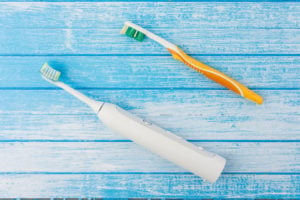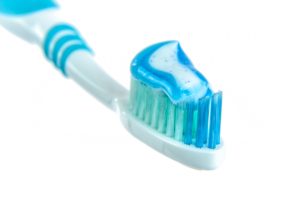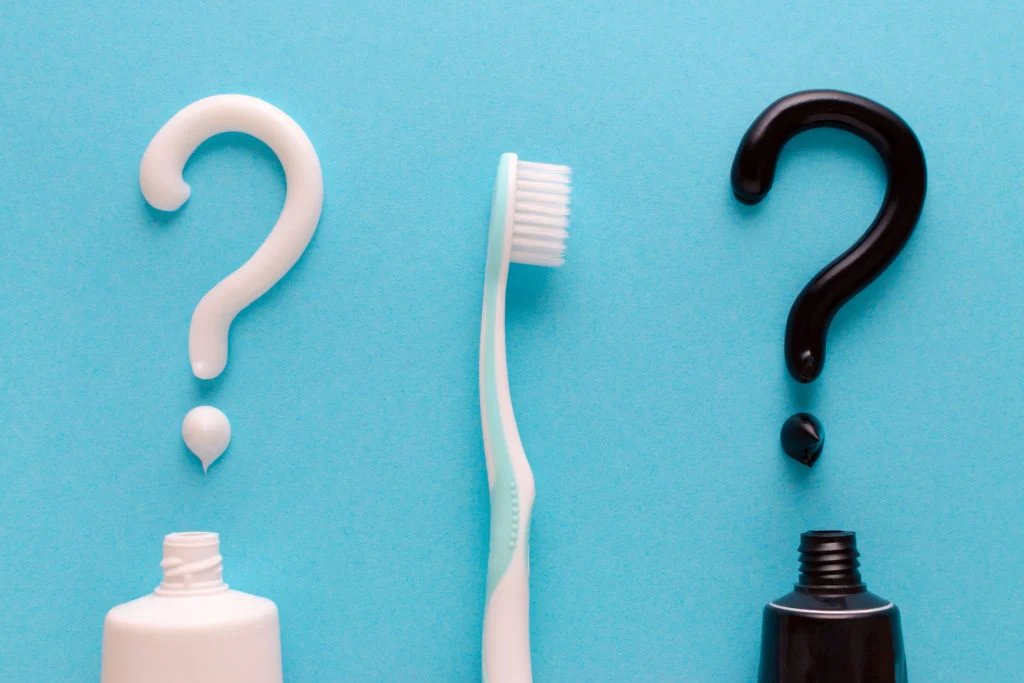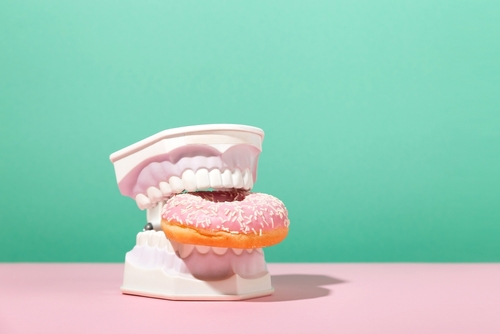Remember when the oral care aisle was simple, and the biggest decision you had to make was what colour toothbrush you wanted?
Modern technology and innovation has seen the oral care market boom. While this is a great thing to keep customers excited about oral hygiene, it also poses some confusion over what products are the best for our teeth, tongue and gums.
Here is a handy guide on what to look for when choosing dental care products.

Choosing a Toothbrush
Toothbrush Bristles:
Soft bristles are genuinely the best choice - especially if you are prone to sensitive teeth or gums. Hard bristles can potentially damage the tooth enamel, a vital protective layer to keep bacteria, sugars and oral diseases at bay.
Toothbrush Size:
Pick a toothbrush with a head size that easily fits into your mouth. You don’t want to be banging your teeth or gums by using a toothbrush too big for your mouth.
Toothbrush Bristle Design:
There is no one-size-fits all solution for the best bristle design. Some people benefit from multi-level or angled bristled, while others find the traditional flat-trimmed bristled are the most effective in removing plaque. The best way to find out your best option is by asking your dentist what design would best suit your teeth.
Manual vs. Electric Toothbrush:

Both options will clean your teeth, however electric toothbrushes make it easier to perform a good clean everyday.
Manual toothbrushes require the user to position and rotate correctly, whereas electric toothbrushes do all of this for you. Some electric toothbrushes also come with a built-in timer to ensure you’re cleaning for the recommended two minutes. This can prove helpful for those times you’re feeling tired or lazy and don’t put in the recommended effort for a good mouth clean.
Furthermore, research has found electric toothbrushes decrease the amount of plaque and gingivitis more in comparison to manual toothbrushes. Case studies show after three months of switching to an electric toothbrush, plaque was reduced by 21 percent and gingivitis by 11 percent.
While the statistics speak for themselves, it doesn’t mean manual toothbrushes do a poor job. It all comes down to the way we use the toothbrush.
Some people prefer manual toothbrushes because they’re affordable and easy to pack when travelling. If you don’t want to fork out for an electric toothbrush, you can still get just as good of a clean as an electric brush if you use it correctly:
- Hold the brush at a 45-degree angle to your teeth and gums.
- Gently brush all tooth surfaces (front, back, chewing) for two minutes.
If you feel an electric toothbrush would benefit you, opt for one that rotates rather than just a vibrating one. The rotation movement is most effective in removing plaque.
Extra tip: Remember your toothbrush has an expiry date! We recommend you replace your toothbrush every three months, or earlier if it starts to look worn or frayed. Toothbrushes harbour bacteria, so be sure to look after it by rinsing after use and storing it upright in a dry area.
Choosing a Toothpaste

Fluoride Toothpaste:
The active ingredient to look out for when choosing toothpaste is fluoride.
Fluoride is a naturally occurring mineral that helps strengthen the outer layer of the tooth (the enamel) to reduce the risks of cavities.
It is naturally found in most water sources such as lakes, rivers and the ocean. Over the past 70 years, it has been added to many public water supplies around the globe due to its proven benefits for oral health.
Read Into Natural and Organic Toothpaste Labels:
The toxic-free movement has opened opportunities for emerging toothpaste brands to offer natural solutions to health-conscious consumers.
While natural ingredients offer valuable cleaning solutions, many popular brands are ditching fluoride as an active ingredient. This poses some oral health concerns, as people using these ‘natural’ options are missing out on the proven benefits of fluoride.
There seems to be a misconception about the safety of fluoride. Remember, fluoride is a naturally occurring mineral. Science has proven its oral health benefits, which is why dentists recommend using a toothpaste containing fluorine.
Teeth Sensitivities:
If you suffer from mild tooth sensitivity, choose toothpaste specifically labelled to help treat sensitive teeth. This will reduce your contact with any irritating ingredients and after a week of use, it will help decrease the discomfort.
If you are still experiencing sensitivity, be sure to visit your dentist to determine the cause.
Choosing a Mouthwash

Mouthwash With Fluoride:
For an all-rounder mouthwash to support a healthy mouth, choose one containing fluoride. As mentioned above, fluoride is an effective ingredient to support healthy and strong teeth, which is backed by 70 years of research and recommended by dentists.
Alcohol-free Mouthwash:
If you suffer from tooth sensitivity, opt for an alcohol-free mouthwash to reduce irritation. An alcohol-free mouthwash is also recommended for children under 6 to reduce the risks if they accidentally swallow it.
While fluoride and alcohol-free mouthwashes are popular choices, there are a variety of mouthwashes on the market to treat different oral health problems. Some other key ingredients to look out for include:
- Cetylpyridinium chloride. This is an antiseptic that kills bacteria, eliminating bad breath and reducing plaque build up.
- Chlorhexidine. This is another antiseptic mouthwash that kills bacteria. It is also known for its ability to treat gingivitis by reducing inflammation, swelling, and bleeding.
- Hydrogen peroxide. This ingredient bleaches and removes stains, to ultimately whiten teeth. Carbamide peroxide is a lower-dosage formulation that is also used as a teeth-whitening solution.
- Essential oils. Some mouthwashes use essential oils known for their antifungal and antibacterial properties. Some popular essential oils include peppermint, eucalyptus and thyme.
Have Questions About Dental Products?
We understand choosing the right dental products to suit you can get a tad overwhelming. With so many options available in the oral care aisle, we’ve decided to simplify the search for our valued patients.

Here at Mulgrave Dental Group, we offer our very own collection of recommended products, giving you confidence knowing each product is dentist-approved. Talk to our professional staff about your individual dental needs and we’ll help you find the best dental care products to solve your issues. Call us at (03) 9562 5156 or book an appointment online.
Smile Makeover Client
Your Healthier Smile Awaits
Whether you're looking to improve your dental health or enhance your smile, we're here to help. Book an appointment with Mulgrave Dental Group today!
Book Now


